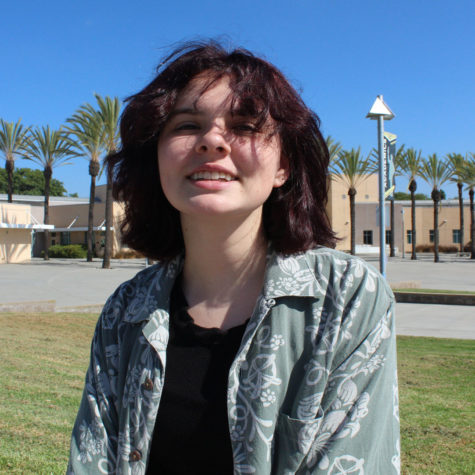Cultural names connect students to roots
March 18, 2022
Anupama Khanwale (10) was named after her mom’s classmate. According to Khanwale, she was given this name because her mom wanted her to be smart like her classmate.
“Parents name their kids after people they want their kids to be like,” Khanwale said. “That’s kind of just a naming tradition in India.”
According to Khanwale, children also take on their dad’s first name as their middle name. She said this forms a deeper connection with her family and parents.
“Anupama” means “unique” in India and Khanwale said that having a traditional Indian name makes her feel more connected to her culture.
“It’s nice to have something [from your culture] that you have with you. It shows a lot of connection to who you are,” Khanwale said.
However, Khanwale has also found challenges in having an Indian name that is difficult for many English-speakers to pronounce.
“Sometimes it’s hard,” Khanwale said. “When you have a substitute [taking roll], you become trained [so that] when they pause, you’re like ‘yeah, I’m here, that’s me.’”
At school, Khanwale goes by the nickname “Anu,” which she said is partially out of convenience for others when it comes to pronunciation. According to her, after moving from India in third grade, her grandma suggested the nickname to avoid mispronunciations from her peers.
“They weren’t able to say it right, which was kind of annoying me a little bit,” Khanwale said. “I could use Anupama now because enough people know how to say it, but it’s something that my grandma gave me, [so] I keep it.”
Khanwale said she understands when people mispronounce her name, as she often has the same trouble with other cultures’ names.
“I definitely don’t hold it against them,” Khanwale said. “You can’t learn to have the accent or pronunciation of every language, and I know they’re not doing it on purpose. I feel like it’s just something I’ve accepted.”
Abhinav Kadali (10) said his first name means “new” and his last name means “ocean.” Like Khanwale, he said having a traditional Indian name allows him to feel more connected to his country of origin.
“I would prefer having my current name than a modernized American name,” Kadali said. “It [makes] me feel more like I’m connected to my roots, legacy and culture.”
According to Kadali, names play a big part in his cultural identity and identity in general.
“Names are how people will recognize you for who you are,” Kadali said. “People use names to determine who is who, and it’s what differentiates us from other people.”
In elementary and early middle school, Kadali said his name was often mispronounced, and he felt like he was alone in this experience.
“I thought it was only my name that was getting mispronounced,” Kadali said. “[But] after a while I understood that [my name] is not very common in America, and not everyone is used to calling anyone ‘Abhinav’ or anything like that.”
Kadali said he is accustomed to people mispronouncing his name, though he still corrects them until they are able to pronounce it correctly.
“I usually try to correct people, and after a while they’ll get the hang of it,” Kadali said. “I kind of just got used to people saying my name wrong. A lot of people will call me ‘aa-buh-naav’ instead of ‘uh-bee-nav,’ and I’m okay with that because it’s close enough.”


